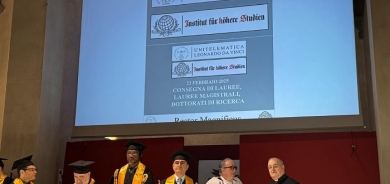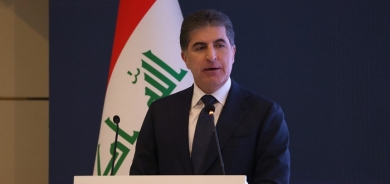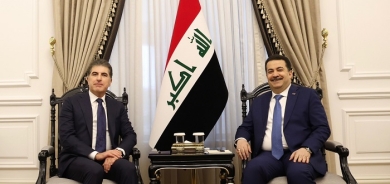Scholz says Putin still pursuing 'imperialist goal'

After their phone call, German Chancellor Olaf Scholz said Russian President Vladimir Putin's goals in Ukraine remain unchanged. Meanwhile, Russia is reportedly establishing a defensive line in Donbas.
German Chancellor Olaf Scholz said his telephone conversations with Russian President Vladimir Putin since the beginning of Moscow's invasion of Ukraine had always been "friendly in tone," despite their "very, very different, indeed widely differing views on the matter."
His remarks, published Saturday, came days after he held a phone call with Putin that lasted for 90 minutes, according to the German government.
Putin's goals in Ukraine remain "unchanged," Scholz told German broadcaster Deutschlandfunk.
"The Russian president is pursuing his imperialist goal of annexing part of the neighboring territory," Scholz said.
The German leader insisted on a diplomatic solution to stop the war, calling for a cease-fire and full withdrawal of Russian troops from Ukraine.
Scholz also claimed that Ukraine's latest gains could be attributed to Berlin's military support.
The weapons that Germany had provided to Ukraine "made the difference and made possible the successes, the current successes, that Ukraine is recording," he claimed. That is why "it makes sense for us to continue there," he said in the Deutschlandfunk interview.
Germany, which was initially reluctant to supply Kyiv with arms, has recently come under renewed pressure to send Ukraine more advanced weapons systems.
On Thursday, Berlin said it would send more multiple rocket launchers and 50 armored personnel carriers to Ukraine.
Still, Kyiv is pressing Germany to give it Leopard tanks and Marder armored vehicles. But Berlin insists it would only deliver advanced weapons in coordination with its allies.
Here's a roundup of some of the other key developments regarding Russia's invasion of Ukraine on September 17.
UK: Russian forces setting up new defensive line
The British Defense Ministry said in its daily intelligence update that Russian troops were working on establishing a new defensive line in the eastern Ukrainian Donbas region.
According to the report, the line is likely is between the Oskil River and Svatove, some 150 kilometers (90 miles) southeast of Ukraine's second-largest city, Kharkiv.
The development comes as a counteroffensive operation saw Ukrainian forces recapture large parts of territory in the country's northeast and south.
"Any substantial loss of territory in Luhansk [in the Donbas region] will unambiguously undermine Russia's strategy," the British Defense Ministry said.
"Russia will likely attempt to conduct a stubborn defense of this area, but it is unclear whether Russia's front line forces have sufficient reserves or adequate morale to withstand another concerted Ukrainian assault," it added.
Separately, the Washington-based Institute for the Study of War reported, citing satellite imagery, that Ukrainian troops have placed artillery on the east bank of the Oskil in Kupiansk.
"Russian forces are likely too weak to prevent further Ukrainian advances along the entire Oskil River if Ukrainian forces choose to resume offensive operations," the institute said.
Rosneft slams Germany's 'illegal' expropriation
Russian state-owned oil company Rosneft has accused Berlin of undertaking the "forced expropriation" of its German subsidiaries.
The German government announced on Friday that it placed Rosneft's three refineries in the country under trusteeship as it sought to manage the impact of the energy crisis.
Rosneft said that the seizure was "illegal" and it would take legal action to protect its assets.
The firm insisted that it had fulfilled its legal and contractual obligations.
Rosneft added that Berlin's decision meant that it was no longer possible to "guarantee the industrial and ecological safety of the plant."
fb/dj (dpa, Reuters)
DW













